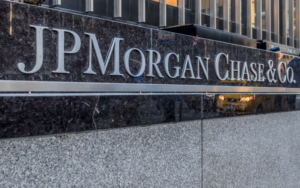Analysts at Vetiva have hinted that the Nigerian banking sector will remain resilient in second half of 2025(H2 2025), buoyed by sound capital raising strategies, and improving cost efficiency.
The firm, yesterday in its second half of 2025 (H2 2025 outlook) report titled, “navigating risks and rebuilding momentum across key sectors” offered a sector-by-sector analysis of Nigeria’s macroeconomic environment and market dynamics.
In the report, Vetiva presented a cautiously optimistic view.
“Despite macroeconomic headwinds, we expect the banking sector to remain resilient in H2 2025, buoyed by robust net interest income, sound capital raising strategies, and improving cost efficiency,” said Oluwayemisi Sunmola, banking analyst.
They noted that the Central Bank of Nigeria’s (CBN) tightening monetary policy, and keeping the Monetary Policy Rare (MPR) at 27.50per cent, continues to support elevated yields.
They projected a net interest income to grow 20per cent y/y in 2025 financial year, aided by loan repricing and attractive returns on government securities.
However, a likely moderation in interest rates as inflation softens may slow income momentum. Banks with strong low-cost deposit bases are expected to maintain margin resilience.
In the report, Vetiva Research said it expected non-interest revenue to remain subdued, with a forecast 17.4per cent y/y growth in H2 2025, following first quarter (Q1) contractions due to trading losses and weaker market activity.
According to the report, the key pressure point is the projected 86per cent increase in impairment charges as regulatory forbearance is phased out and previously restructurd loans are reclassified.
“This will weigh on earnings, particularly for banks with high legacy exposures,” Sunmola cautioned.
The report noted that capitalisation efforts are underway across the sector in response to CBN’s recapitalization directive.
While banks like Guaranty Trust Holding Company Plc (GTCO), Stanbic IBTC, and United Bank for Africa Plc (UBA) are well- positioned to sustain dividends, others may face short-term constraints.
For the Oil & Gas sector, Vetiva noted a mixed outlook characterized by both opportunities and challenges.
Oil & Gas Analyst at Vetiva, Divine Olumese noted that “The global energy market is at a turning point, with geopolitical tensions, changing demand patterns, an OPEC+ supply dynamics all influencing price volatility and domestic sector stability.”
On the domestic front, Nigeria’s crude production rose modestly in early 2025 but remains below OPEC quotas due to infrastructure constraints and maintenance activity. She indicates that whilst ongoing divestments to indigenous players hold long-term potential, the immediate gains have been moderate.
Looking downstream, market competition has intensified following deregulation, pressuring margins among less efficient marketers. “Survival in the new regime depends on pricing intelligence, distribution efficiency, and supply chain agility,” Olumese added.
The growing role of the Dangote Refinery, particularly through the naira-for-crude framework, has alleviated local supply pressures, although FX constraints and global sourcing continue to present some challenges. Rising global oil prices could boost Nigeria’s export revenues but also pose risks of higher petrol prices and foreign exchange strain.
For the Consumer Goods sector, Vetiva projects sustained momentum, driven by improving macro fundamentals. “This projection is underpinned by notable improvements across three key macroeconomic indicators, inflation, FX volatility, and energy prices,” said, Consumer Goods analyst, Motunrayo Sowunmi.
After a difficult 2024 marked by high input costs and naira depreciation, Q1’2025 results showed an average 62per cent revenue growth among coverage companies, largely attributed to cost-reflective pricing.
Also, the report notes that input cost pressures have eased, supported by currency appreciation and expanding local sourcing. “Local-sourcing initiatives being adopted by producers to reduce import dependency are expected to continue to reduce cost pressures for the rest of the year,” Sowunmi explained.
Nonetheless, global energy price volatility poses a downside risk. Looking ahead, Vetiva expects revenue growth to be bolstered by seasonal demand and a gradual recovery in consumer spending.
Similarly, the Telecommunications sector maintains a bullish outlook, driven by strong demand for data services and increased pricing power. “Our positive outlook is driven by increased broadband penetration, sustained demand for data services, and renewed capital investments following the January 2025 tariff hike,” said Divine Olumese.
The sector’s contribution to GDP rose to 14.4per cent in Q4 2024, up from 13.94per cent in Q3 2024, reflecting strong quarterly growth. This also marks a modest year-on-year increase from 14per cent in Q4 2023, aided by growing smartphone adoption and improved subscription levels.
The NCC’s 50per cent tariff adjustment across voice, SMS, and data services, while lower than what operators proposed, lifted EBITDA margins for MTN and Airtel.
These gains have been reinforced by FX exposure management and cost-saving technologies like site automation and renewable energy adoption.
“With visibility on earnings improving and FX risks being proactively managed, we believe the sector is well-positioned for sustainable growth,” Olumese concluded.



